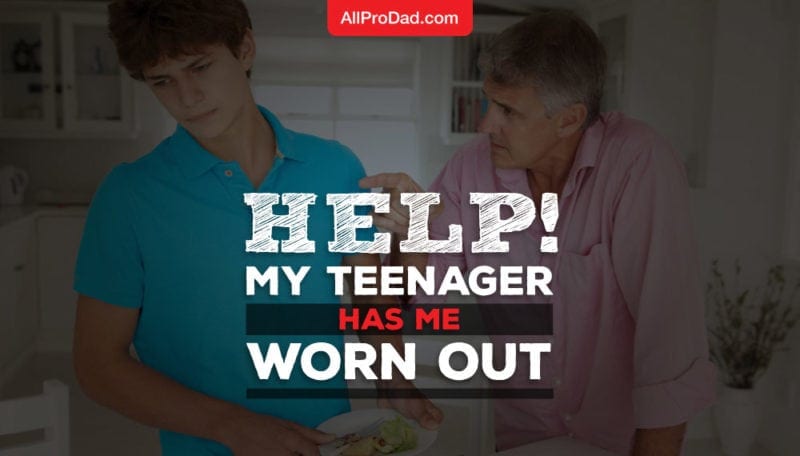Many years ago, I met weekly for breakfast with a group of teenage guys to talk about life, struggles, faith, relationships. When a couple of them got into a fistfight playing basketball, I gathered everyone to discuss it. The goal of the long, difficult meeting was to prevent fights like that from happening again. I handed out some harsh reprimands, but I thought we left in a good place. Eventually, I learned otherwise.
The next time I saw them, I said hello, but they just kept walking. My attempts to initiate were met with silence. I was being shut out. Being shut out by a teenager is a painful experience. Are you getting one-word answers and blank stares when you attempt a conversation? Is your teenager giving you the cold shoulder? Do you want to know why? Here are 5 reasons you are being shut out by your teenager.
1. He feels pressured.
Teenagers today are under more stress than we ever experienced. The expectations placed on them to perform are through the roof. Teens are weighed down by full sports schedules, hours of nightly homework, forced advanced placement classes, performing arts, community service hours, and part-time jobs. Add the social pressures and awkward changes of adolescence. Teenagers are getting pressure from every area of life. If your teen sees you as another pressure point rather than an ally, they’ll shut their door and seek refuge.
Advice: Show them empathy regarding the pressure they are under. Do your best to understand it. If they are failing in school, use phrases such as, “How can I help you?” or “What can we do about this?” so they know you are there for support. Reduce the number of activities. They won’t want to, so you may have to give them activity choices to cut and set boundaries for their own welfare.
2. She feels misunderstood.
They have been marginalized. Everyone tells them what to do while giving them little respect. A consistent complaint I heard from teenagers while in their world was that adults didn’t listen. They feel like no one understands them or takes the time to get to know them. Many times, adults assume we understand teenagers because we were teens once. But it’s a dangerous assumption. Not only is each person unique, but the world has changed.
Advice: Assume you know nothing. Gain as much intel as you can. Ask a lot of questions and resist the temptation to tell them what to do. Talk to their friends when they come over. If your teens start giving you cold, one-word answers, back off. They probably feel interrogated. It just means you have to take it slower.
3. He’s tired of being micromanaged.
As adults, we want to save them from all our mistakes. So when they do something wrong, we are quick to correct. They see it as constant criticism and feel suffocated. This is exacerbated by the fact that they are already looking to separate from their parents. Sometimes it makes them feel like they can never do anything right in your eyes.
Advice: Let them make some mistakes without criticizing. Give them room to breathe. For every criticism, give them several things about them that make you proud.
4. She feels like you haven’t followed through.
It is a huge let down when promises are made and not kept. When it becomes a pattern, you become untrustworthy and undependable. It hurts and they put up walls to protect themselves.
Advice: Apologize for past let downs. Moving forward, keep your promises. Always follow through. Win them back one kept promise at a time.
5. He feels like you cause instability.
The teenage years bring so many changes. The range of changes is unsettling and covers a broad spectrum from the body to feelings and friendships. Teens feel a lot of instability. If their home is a place of heaviness and stress, they will desire to be somewhere else. This is not meant to be an indictment; it’s just the unfortunate reality. The things that cause instability at home would be marital difficulty, substance abuse, anger issues, and physical or emotional abuse.
Advice: Do your best to make your home a stable place. Most of these issues can be avoided. If there is abuse, seek professional help. Marital difficulty can be hard to avoid. Seek counseling to help navigate it.
Sound off: Why do you think teenagers shut out adults?











Huddle up with your kids and ask, “What is one thing I do that you wish I didn’t?”